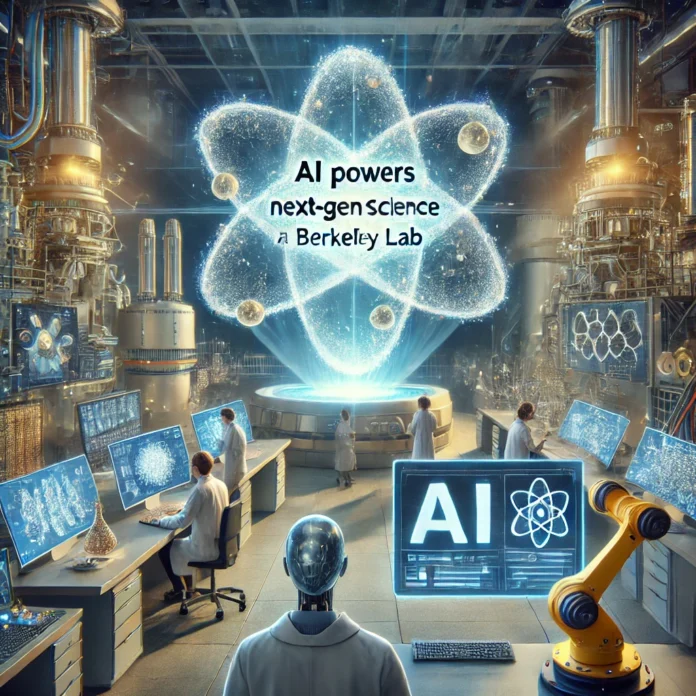As artificial intelligence continues to permeate industries worldwide, its transformative potential in fundamental scientific research is becoming increasingly evident. The U.S. Department of Energy’s Lawrence Berkeley National Laboratory (Berkeley Lab) yesterday highlighted its significant strides in engineering and deploying sophisticated AI tools, positioning itself at the forefront of building the «Lab of the Future» and accelerating discovery across multiple scientific domains.
In a detailed overview published on April 29th, Berkeley Lab showcased how AI is not just an auxiliary tool but a core component driving efficiency and enabling breakthroughs previously deemed too complex or time-consuming. Their initiatives demonstrate AI’s power to analyze vast datasets, optimize complex experimental parameters, and even autonomously conduct experiments, fundamentally changing the scientific method.
One standout example is the A-Lab, Berkeley Lab’s autonomous materials discovery facility. Here, AI coupled with robotics works tirelessly, selecting from nearly 200 precursor ingredients (like metal oxides containing lithium, iron, and copper) to synthesize and test novel material combinations. This AI-driven approach recently led to the discovery of a compound exhibiting record-breaking performance, promising more cost-effective and reliable energy technologies. The system intelligently designs experiments, executes them using robotic arms, analyzes results, and plans subsequent steps, drastically shortening the materials discovery cycle.
Beyond materials science, Berkeley Lab detailed the success of GPTune, an AI tool trained on datasets from the Relativistic Heavy Ion Collider (RHIC) at Brookhaven National Laboratory. By intelligently setting 45 different operating parameters, GPTune significantly boosted the collider’s beam intensity and precision. This allows scientists to generate more subatomic particles during ion collisions, enabling deeper insights into the fundamental forces and building blocks of nature. The success of GPTune underscores AI’s capability to optimize highly complex systems, with potential applications across a wide range of scientific instruments globally.
These examples are part of a broader strategy at Berkeley Lab to harness AI for high-impact science. The Lab emphasizes that these tools make research faster and more efficient, allowing scientists to focus on higher-level analysis and interpretation. This integration requires significant computational power, often leveraging supercomputing resources, and highlights the convergence of AI, high-performance computing (HPC), and domain-specific scientific expertise.
The implications extend far beyond Berkeley Lab. As AI models become more sophisticated and tailored for scientific tasks, we can anticipate accelerated progress in fields ranging from drug discovery and climate modeling to astrophysics and fusion energy. The ability of AI to identify subtle patterns in massive datasets and navigate complex parameter spaces offers a powerful new paradigm for scientific exploration.
While much public attention focuses on generative AI for text and images, applications like those at Berkeley Lab demonstrate the profound impact AI is having on tackling humanity’s most significant scientific challenges. It represents a shift towards a future where AI acts as an indispensable collaborator in the quest for knowledge.
As Berkeley Lab continues to develop and deploy these advanced AI technologies, it serves as a crucial indicator of how AI is reshaping the landscape of research and innovation, promising a future rich with accelerated discoveries and technological advancements.




